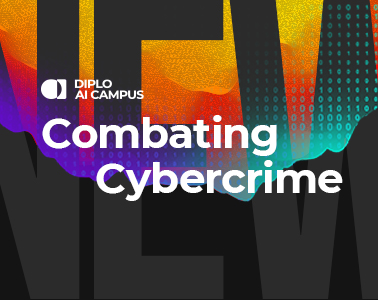This course equips professionals with the knowledge to address cybercrime through international cooperation and diplomacy. It explains cybercrime risks and impacts, especially in the context of emerging digital technologies, and outlines the main international policy and cooperation frameworks that can be used by policymakers, diplomats, law enforcement authorities, the technical community, and all other relevant stakeholders to address cybercrime challenges. The course is taught by experts in cybersecurity and international relations.
Cybercrime is raging globally. Rarely any internet user today has not been exposed to some attempt (successful or failed) of online fraud, scam, leak of personal information, compromise of individual social media or bank accounts, or even money theft. Small and medium enterprises, public institutions, and civil society organizations are increasingly being attacked by ransomware. Major financial institutions, companies and even critical infrastructure providers (energy supplies, hospitals or communications) have also become targets of financially motivated cyber attacks.
Victims, however, often feel helpless in terms of redress. Police and judicial institutions have limited knowledge and human capacities to process attacks that happen every day. Moreover, since almost all cybercrime attempts are global, law enforcement authorities face challenges in ensuring efficient cross-border cooperation. These challenges stem from the international legal instruments which are disputed and not yet widely embraced, national legal frameworks that are not harmonised across countries, occasional lack of political will to cooperate across borders, and complexity of cooperation with the global tech industry that provides services and store possible evidence. In contrast, global cooperation of cyber criminals seems to be very efficient.
Yet, hope that cybercrime can be pushed back seems to be ever more present, not least due to the recent adoption of the first UN Cybercrime Convention, coupled with the uptake of the existing Budapest Convention of the Council of Europe, and the cases of successful cooperation among law enforcement authorities through INTERPOL and Europol in dismantling global cybercrime and criminal networks. What can policymakers, diplomats, law enforcement and cybersecurity professionals do to strengthen international cooperation in combating cybercrime?


